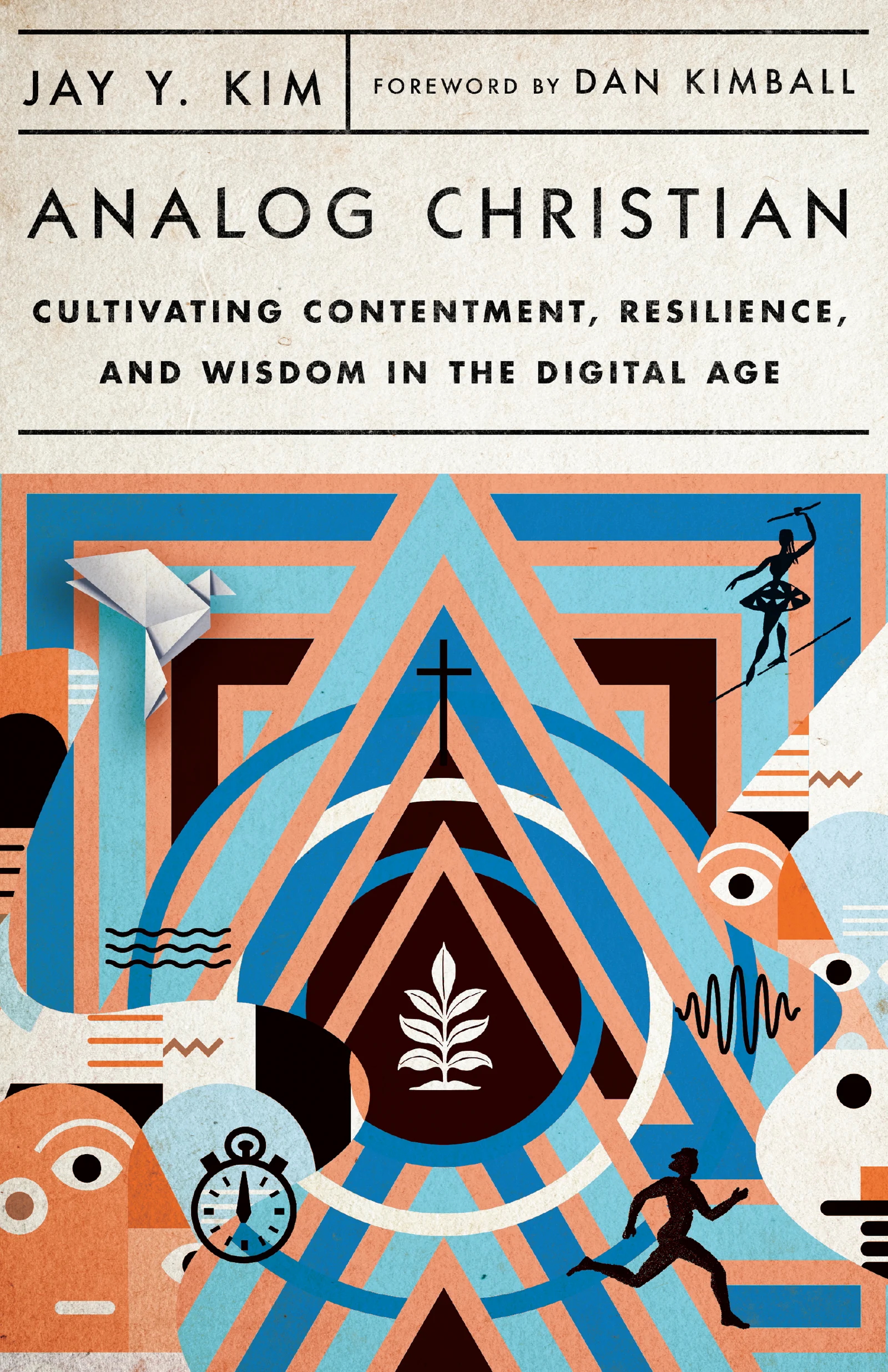My toxic trait is reading books about the harms of smartphones and social media but not doing anything about it. If the book jacket mentions “unprecedented times” or “digital minimalism”, I’m already clicking, Add to Cart. I can’t change until I’ve found the exact right way to do it. Until then, I’ll be reading about the Woody Allen sex offence allegations on my phone while waiting for my lunch in the microwave. I know there is a billion dollar industry profiting from my lack of self-control, but my smartphone makes life easier. I can’t see myself getting rid of it. Yet I don’t think I’m the only one who is frustrated to find my phone in hand again. Enter Analog Christian: Cultivating Contentment, Resilience, and Wisdom in the Digital Age by Jay Y. Kim, a pastor in Silicon Valley.
Analog Christian is structured in three parts that explore the fruit of the Spirit: ‘Cultivating Contentment’ (love, joy, and peace), ‘Cultivating Resilience’ (patience, kindness, and goodness), and ‘Cultivating Wisdom’ (faithfulness, gentleness, and self-control). Kim compares each fruit to a particular sin that he argues is aggravated by the digital age: self-centric despair, comparison, contempt, impatience, hostility, forgetfulness, outrage, and reckless indulgence.

Analog Christian: Cultivating Contentment, Resilience, and Wisdom in the Digital Age
Jay Y. Kim
KoorongAnalog Christian: Cultivating Contentment, Resilience, and Wisdom in the Digital Age
Jay Y. Kim
As the digital age inclines us to discontentment, fragility, and foolishness, how are followers of Jesus to respond? What is the theological basis for living in creative resistance to the forces of our day? How can Christians cultivate the contentment, resilience, and wisdom to not only survive but to thrive as we navigate the specific challenges of our age?
Discipline Isn’t Enough
Analog Christian does not feel like a technology book, primarily, but rather a deep dive on the fruit of the Spirit. Kim gently reminds the reader
The battle of the temptations of the flesh, particularly in the digital age, cannot be won by human ability, resolve, or discipline alone. The faithfulness we need comes alive only as the Spirit of God bears fruit in our lives. (p.114)
I think that if I find the right method, berate myself more, then I won’t need to ask God for help to change. But Kim shows that my digital and analogue sins are the same. He argues that smartphones and social media do not cause my sins, but they do aggravate them.
The standout chapter is on patience. Kim acknowledges his own sin, and his care for his flock is evident. This is not a shallow treatment of patience:
In New Testament Greek, the word most often translated patience is makrothymia. It’s also sometimes translated forbearance or longsuffering. Biblically speaking, patience is the strength and stamina to bear suffering, to endure pain, opposition, weakness, and inconvenience. In modern terminology, some might call it grit. Paul includes it as one of the characteristics of the Spirit’s fruit in the Christian because as we are formed into Christlikeness, though difficult circumstances may not change, our ability to withstand can. It’s why he reminds us in Ephesians 4:2 to be “patient, bearing with one another in love.” The word bearing can also be translated as enduring. Again, strength and stamina. But the gritty Christian, able to endure discomfort and struggle, is an increasingly rare thing in the digital age. (p. 68)
Ground Left Uncovered
Analog Christian has a narrow scope that it covers beautifully. However there is a lot more ground in the topic that is worth exploring. For example, Kim does not examine, in depth, the harms of smartphone and social media use or possible collective solutions, as famously outlined by Jonathan Haidt in The Anxious Generation.[1] Kim also only briefly touches on practical methods for reducing screen time.[2]
Analog Christian was a balm to my obsessive, worried soul. I am tempted to think that the Bible does not have anything to say about these unprecedented times, but Kim reminded me that while our sinful hearts are the same across human history, our Lord’s mercy in changing sinner’s hearts is the same too.
[1] Haidt explores the precipitating and perpetuating factors of the contemporary youth mental health crisis across thirty-seven countries. He attributes this to young people being overprotected in real life and under-protected online. Haidt provides substantial evidence of the damaging design of these products. Although Haidt is not a Christian, his family, school, and community level solutions tie in well with Kim’s conclusions.
[2] For practical recommendations, I particularly like Digital Minimalism by Cal Newport. Newport, a computer science professor, discusses how to maximise the benefits of technology and minimise harms with nuance, depth, and common sense. For a Christian perspective, I like Justin Whitmel Earley’s The Common Rule. He argues that habits are liturgies. His focus is on developing daily habits that love Christ and your neighbour.














